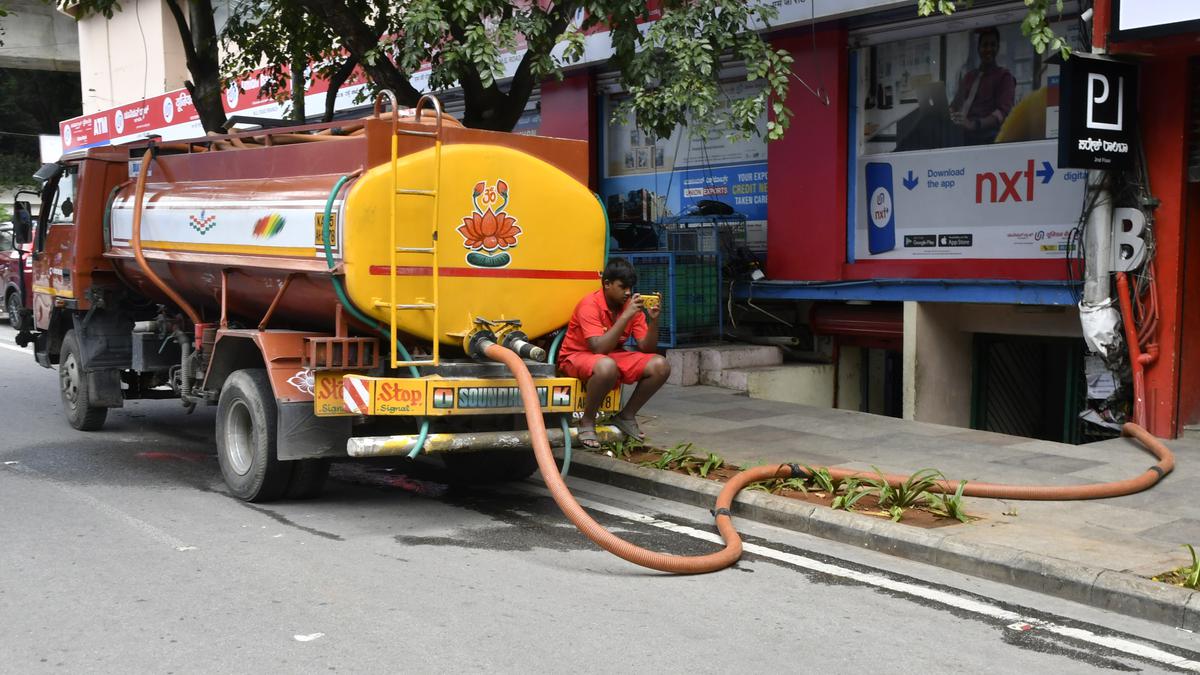
How to fight water scarcity in summer? Make water conservation a law, say activists Premium
The Hindu
Barely weeks from a scorching summer, Bengalureans are deeply worried about a perennial problem that just does not seem to go away: Drinking water woes. Can a smart water-pricing strategy boost conservation or is a separate law the only way to give it some teeth?
Barely weeks from a scorching summer, Bengalureans are deeply worried about a perennial problem that just does not seem to go away: Drinking water woes. Can a smart water-pricing strategy boost conservation or is a separate law the only way to give it some teeth?
Many water experts will tell you this for the failure of conservation efforts so far: Despite the enormous costs involved in pumping Cauvery water from over 120 kms, it is supplied at ₹7 per kilo litre in the city. “For a thousand litres, you are paying just ₹7-8. That is cheap, and people don’t feel the pinch. There is no limit in supply, and there is no incentive to save water,” as Senior Scientist A.R. Shivakumar, a Water Management Advisor to multiple State Governments, puts it.
However, this would have to be put in the context of treating water as a public good. “This call for monetizing water beyond a certain slab is also linked to deliberately creating scarcity. Obviously, things like rationing will have to happen. And like in electricity, you may want to ensure that there is no wastage by educating people, rather than just letting the economy take over,” says water activist Kshitij Urs.
A law for water conservation
The city seriously lacks a law that mandates water conservation. “It is free for all now. If you want to use one lakh litres a month, do you think there is any restriction? No. You have the ability to pay, you pay and get it. Conservation measures should be enforced for every house, every apartment, institution, hotel and every industry,” says Shivakumar.
So, how should consumption be measured and what is the pricing strategy to adopt? Srikant Narasimhan, Bengaluru Navanirman Party (BNP) General Secretary and Bangalore Apartments Federation (BAF) Founder, has a suggestion: “For an individual house with five to six people, the rough water usage should be about 500 litres per house per day. This means 15 kilo litres a month, of which only 30% should be Cauvery water.”
The rate should be kept low for anything less than 5 kilo liters of Cauvery water per house, he points out. “Currently, they charge apartments a flat rate of ₹25 per kiloliter, which is exorbitant and ridiculous. There should be a proper slab structure, with low rates for 0 to 5 kl and 5 to 10 kl. Let the rate be ₹50 or ₹60 for more than 10kl. That is how you should penalise over-usage,” Srikant explains.













